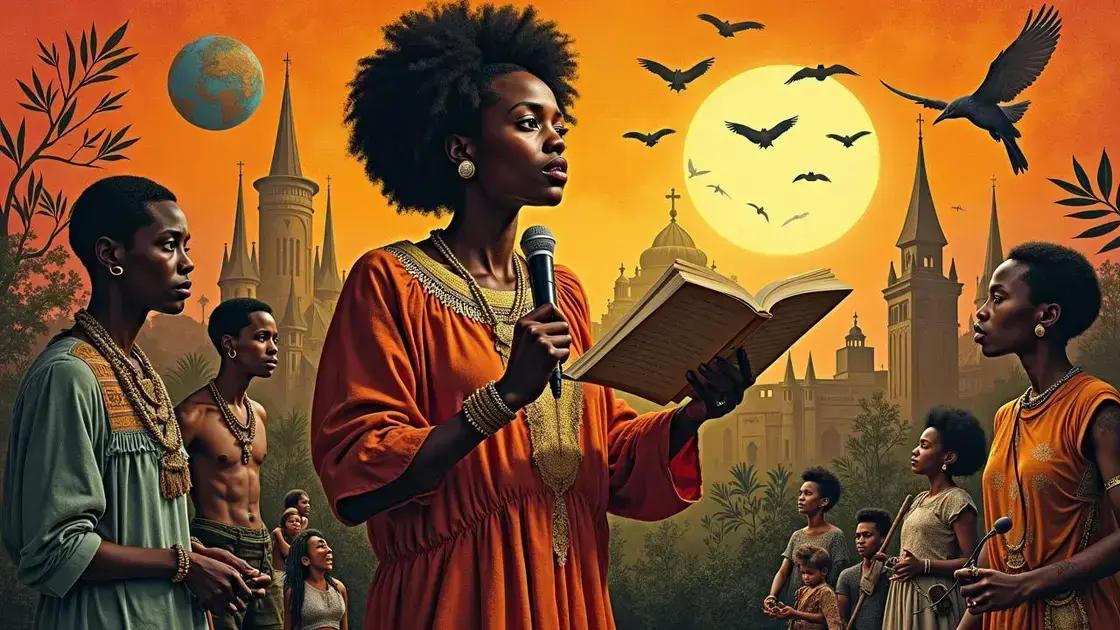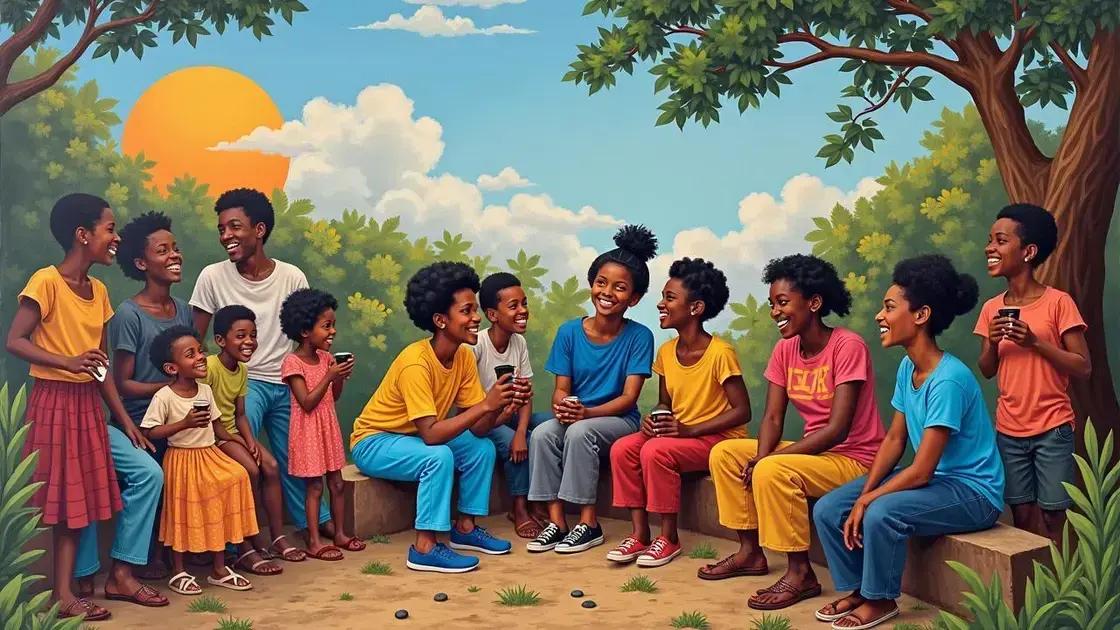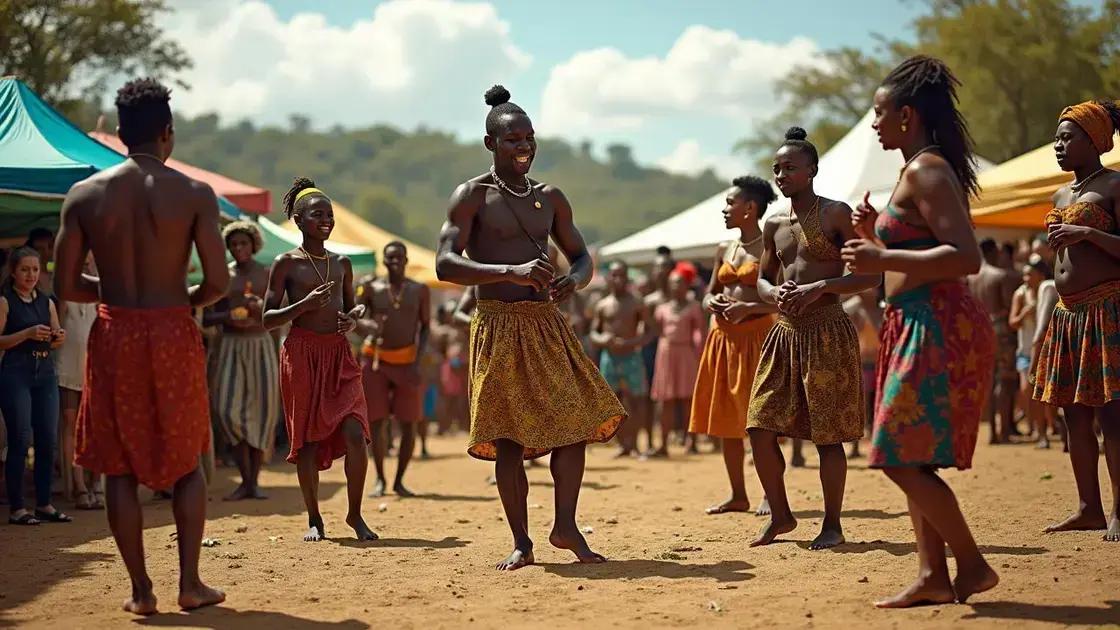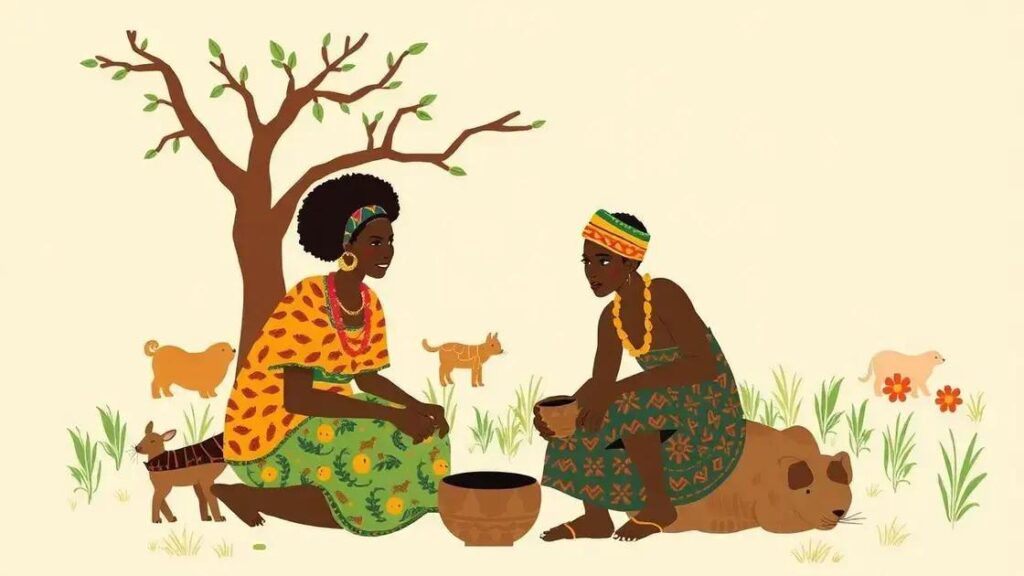The African Trick is a storytelling tradition rooted in African culture, symbolizing creativity and wisdom. It serves to bond communities, pass down knowledge, and maintain cultural identity through performances and modern adaptations, ensuring its relevance in today’s world.
What is the African Trick? It’s a captivating concept rooted in the rich traditions of African culture. This intriguing practice has deep historical significance and is often misunderstood. In this article, we will delve into the origins of the African Trick, explore its cultural importance, and examine how this unique practice continues to influence communities today.
The Origins of the African Trick

The African Trick has roots that delve deep into the ancient traditions and folklore of Africa. First known through oral histories, it is a concept that encompasses various cultural practices and rituals that have been passed down through generations. Many believe it originated as a method to communicate messages or stories embedded in the diverse African cultures.
Cultural Symbolism
Throughout history, the African Trick has symbolized the cleverness and resourcefulness of people in the continent. Elders and storytellers used the trick to convey moral lessons and wisdom, often wrapped in entertaining tales. It serves as a reminder of the importance of community and the sharing of knowledge.
Historical Context
The origins also reflect a time when art and performance held significant value in society. Different regions, from West Africa to East Africa, have unique adaptations of the African Trick, showcasing the rich diversity of cultural expressions. In folklore, its representation often includes elements of nature, animals, and ancestral spirits, connecting people to their environment.
As societies evolved, the trick transformed but retained its core significance. It became a symbol of resilience and adaptability amidst changing circumstances, illustrating how culture can flourish over time.
Understanding the Cultural Significance

Understanding the cultural significance of the African Trick unveils a rich tapestry of values and teachings. This concept is woven into the very fabric of African life and reflects the creativity and wisdom of its people. Different cultures across the continent have used the trick as a means of expressing beliefs, morals, and social commentary.
Community Bonding
The African Trick plays a vital role in community bonding. Through storytelling and performances, people gather to share experiences, laugh, and learn. This fosters a sense of belonging and strengthens relationships between individuals and their communities.
Passage of Knowledge
One of the most significant aspects of the African Trick is its function as a tool for the passage of knowledge. Elders often use it to teach younger generations about cultural heritage, ethics, and survival skills. It helps maintain a connection to the past while also preparing for the future, ensuring that traditions thrive and evolve.
Additionally, the stories related to the African Trick often contain humor and clever lessons. This approach engages audiences and makes learning enjoyable. The ability to convey complex ideas in an entertaining manner adds to its cultural impact.
Preservation of Identity
In the face of modernization, the African Trick serves as a means of preserving cultural identity. As globalization impacts communities, these traditional practices remind individuals of who they are and where they come from. Engaging with the trick reaffirms pride in one’s heritage and contributes to cultural continuity.
How the African Trick is Practiced Today

Today, the African Trick is practiced in various ways that reflect both tradition and modern influence. It can be found in community gatherings, festivals, and educational settings where storytelling remains a central theme. In many regions, artists and performers use these ancient tales to engage audiences, mixing traditional elements with contemporary art forms.
Integration in Art and Performance
Many artists incorporate the African Trick in their performances, using dance, music, and theater. This blend of art not only entertains but also educates audiences about African culture. Performances often showcase the cleverness and humor associated with the trick, making it relatable to people of all ages.
Educational Roles
Schools and cultural institutions are now adopting the African Trick as a teaching tool. Workshops and classes focus on storytelling techniques, helping young people connect with their heritage. Educators emphasize the lessons embedded in these stories, ensuring that the values and morals continue to be appreciated.
Through interactive sessions, students learn to express themselves creatively while connecting with their roots. This educational approach helps preserve the cultural significance of the African Trick for future generations.
Global Influence
With the rise of social media, the African Trick has gained a global audience. Artists share their interpretations online, sparking interest and discussions worldwide. This exposure allows for a dynamic exchange of cultural practices and encourages more people to learn about and appreciate African traditions.
In addition, performances that incorporate the African Trick are featured in international festivals, showcasing its relevance beyond the continent. Such opportunities highlight the importance of storytelling as a universal form of human expression.
In Conclusion: Embracing the African Trick
The African Trick represents a unique blend of culture, tradition, and creativity that has stood the test of time. From its origins as a method of storytelling to its role in contemporary art and education, it continues to be an integral part of African identity.
Through community gatherings, educational initiatives, and global exposure, the significance of the African Trick remains strong. This practice not only fosters unity within communities but also preserves and promotes the rich heritage of African cultures.
As we celebrate the African Trick, it is essential to recognize its ongoing evolution and relevance in today’s world. Embracing this tradition ensures that its lessons and values endure for future generations.
FAQ – Frequently Asked Questions about the African Trick
What is the African Trick?
The African Trick is a storytelling tradition that conveys cultural values and lessons through clever narratives and performances.
How did the African Trick originate?
It originated from ancient oral traditions and folklore, used by storytellers to impart wisdom and entertain audiences.
What is the cultural significance of the African Trick?
It fosters community bonding, serves as a tool for knowledge transfer, and helps preserve cultural identity amidst modernization.
How is the African Trick practiced today?
It is practiced through community events, educational programs, and has gained global exposure via social media and international festivals.
Why is storytelling important in African cultures?
Storytelling connects generations, teaches moral lessons, and reinforces the values and traditions that define cultural identity.
Can the African Trick be adapted for modern audiences?
Yes, it can be adapted using contemporary art forms, ensuring it remains relevant and engaging for diverse audiences.













